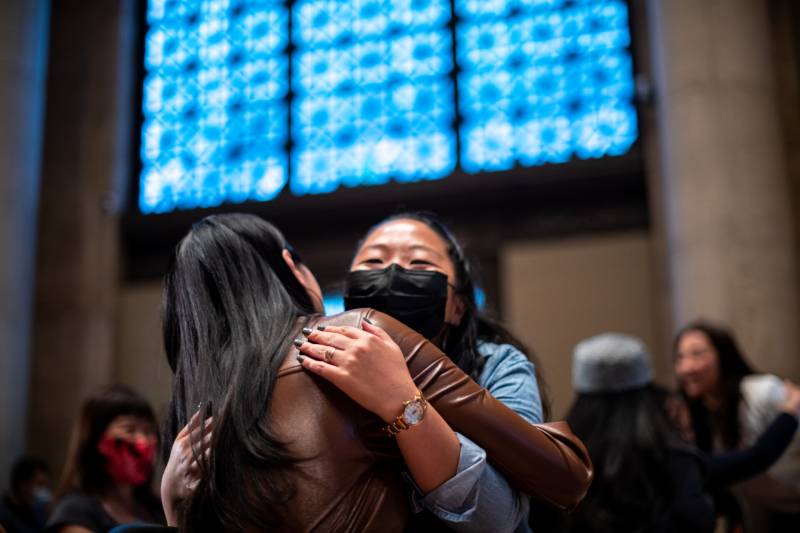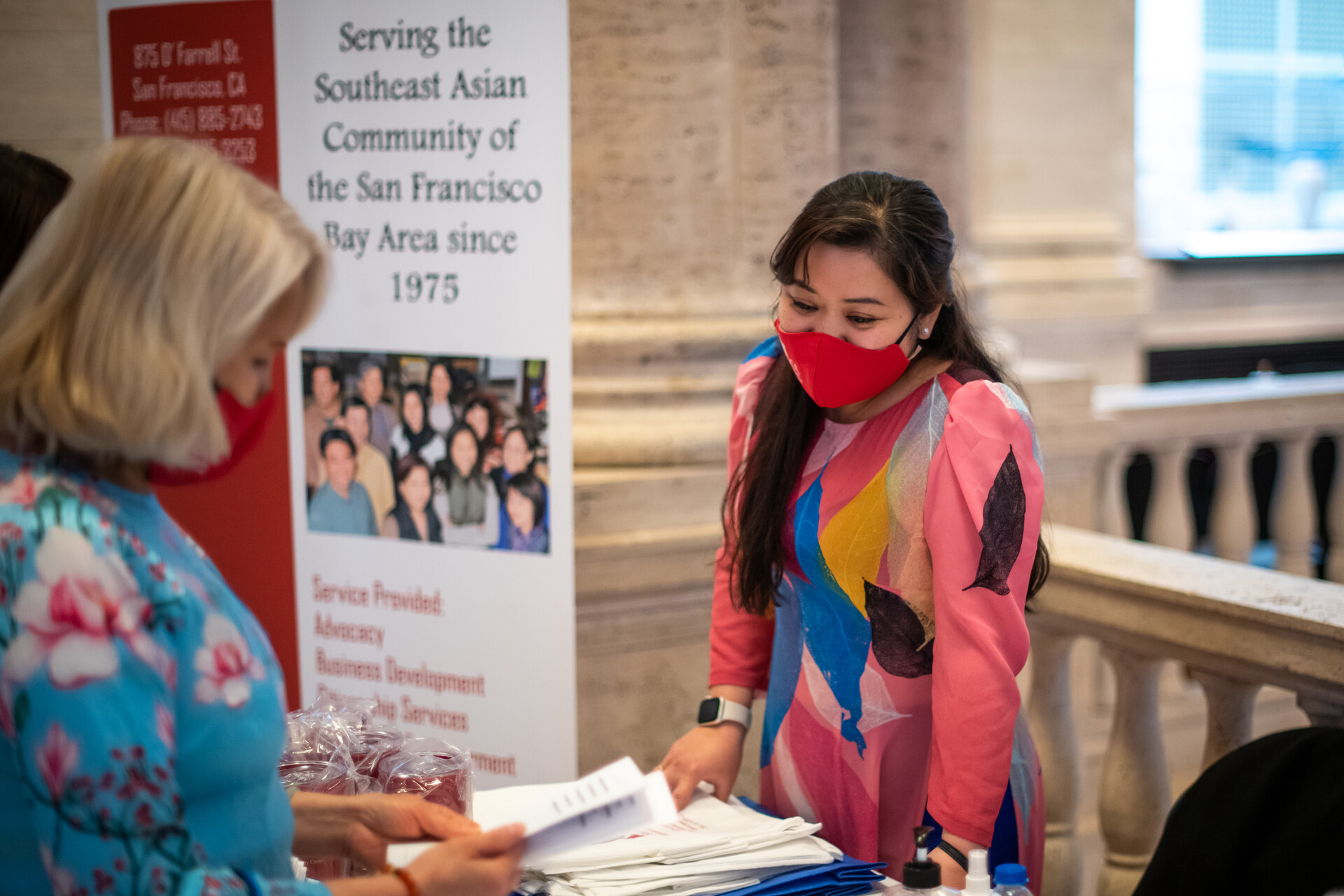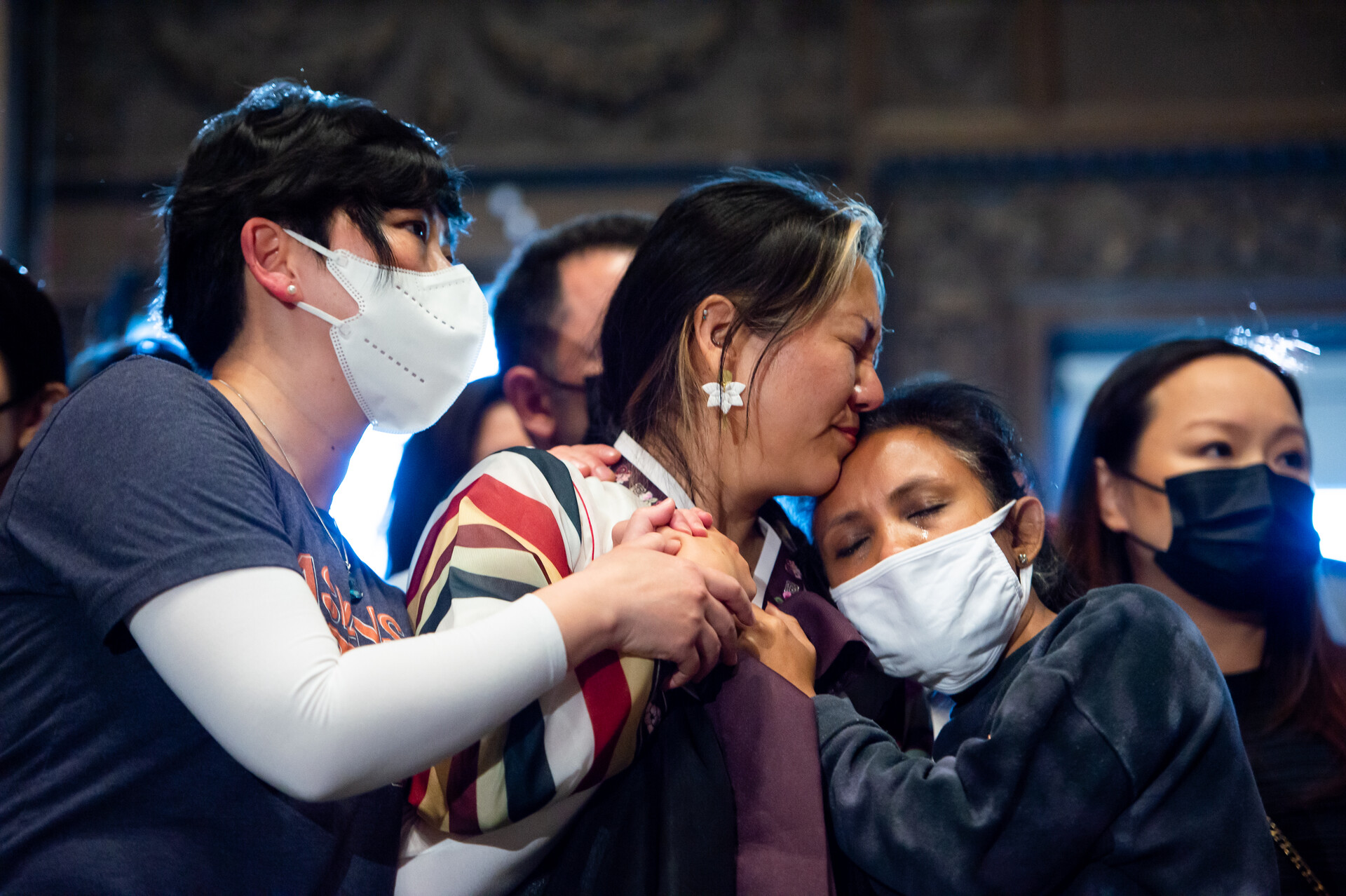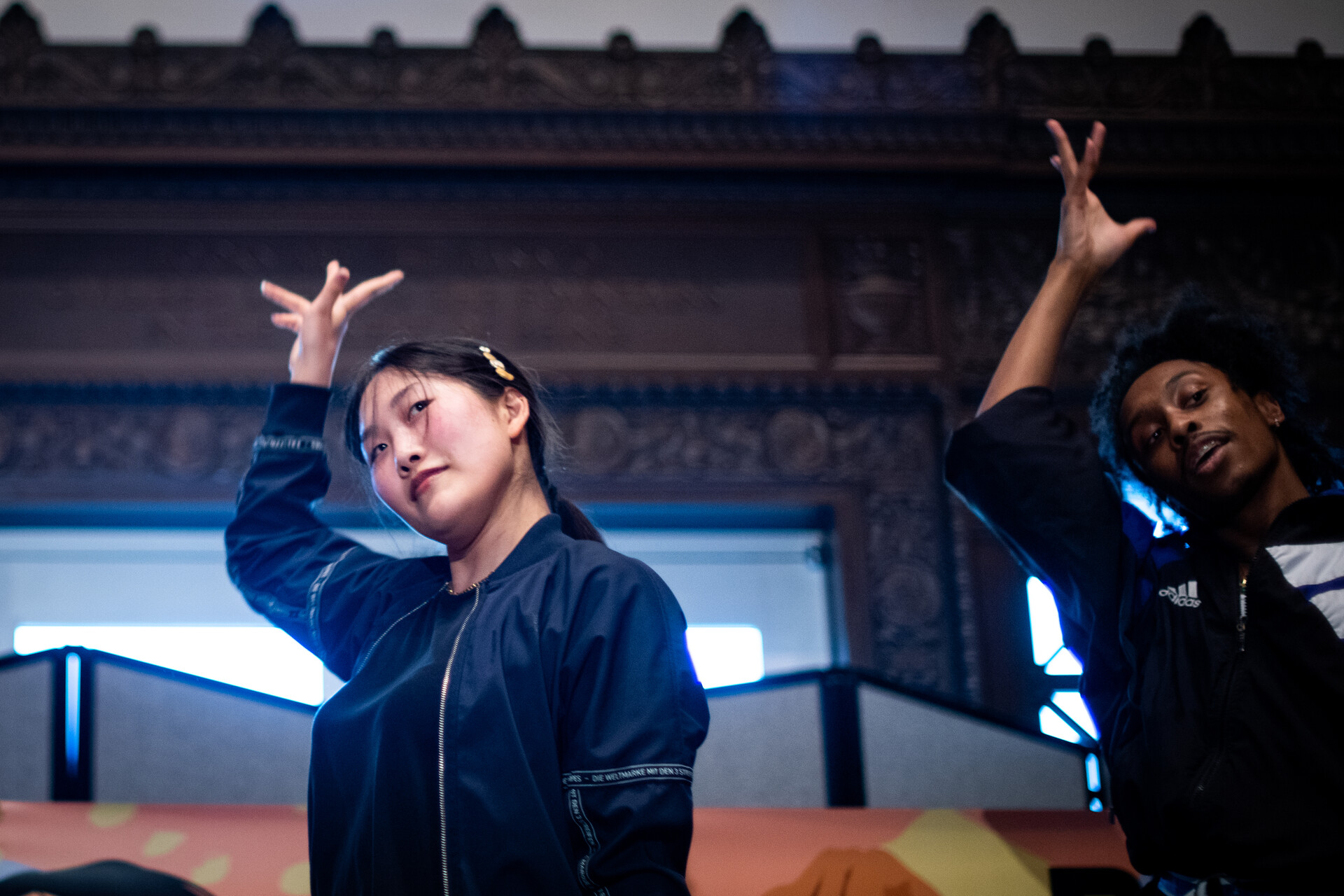Wednesday marked one year since a gunman killed eight people, including six women of Asian descent, at spa businesses in the Atlanta, Georgia, area. Rallies and other events were held in the Bay Area and across the country to remember the victims of the shootings and promote awareness about ongoing violence against Asian Americans and Pacific Islanders.
A “Break the Silence” event at San Francisco’s Asian Art Museum — featuring a robust speaker lineup of influential Asian American women — provided free legal and mental health resources, including group discussions led by a therapist, and a self-defense workshop.
Zeien Cheung, co-founder of the group Asians Are Strong, said she helped organize the event both to commemorate the Atlanta spa victims, and to create a safe space for Asian American women.
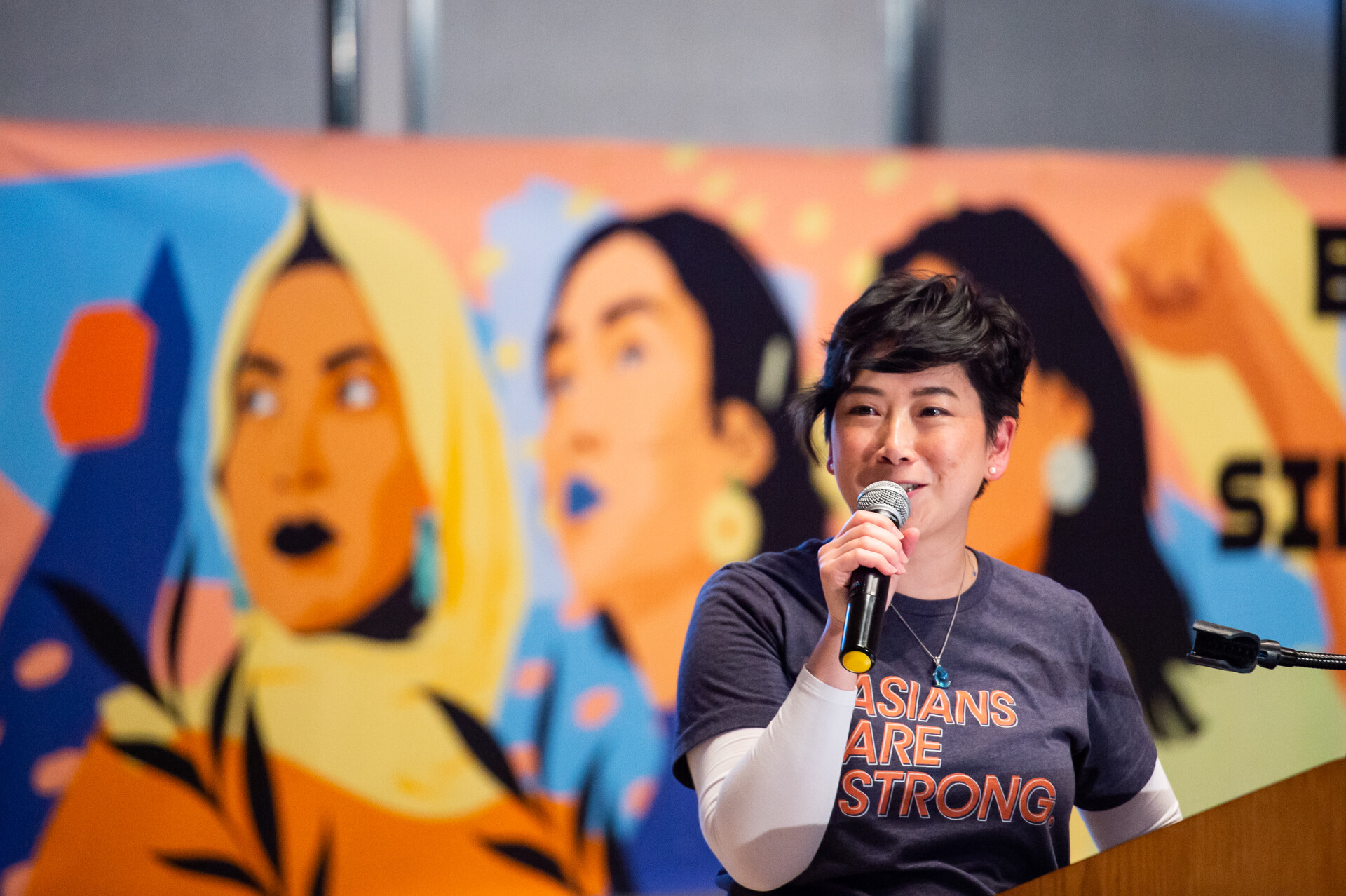
“We need to remember, we need to acknowledge the pain,” Cheung told KQED. “But yet at the same time, how are we moving forward together and collectively doing something to change this?”
Cheung said the event was not only a time to grieve, but also to acknowledge and celebrate the experience and strength of Asian American women.
“What can we do, how can we be together, how can we stand together stronger?” she said.
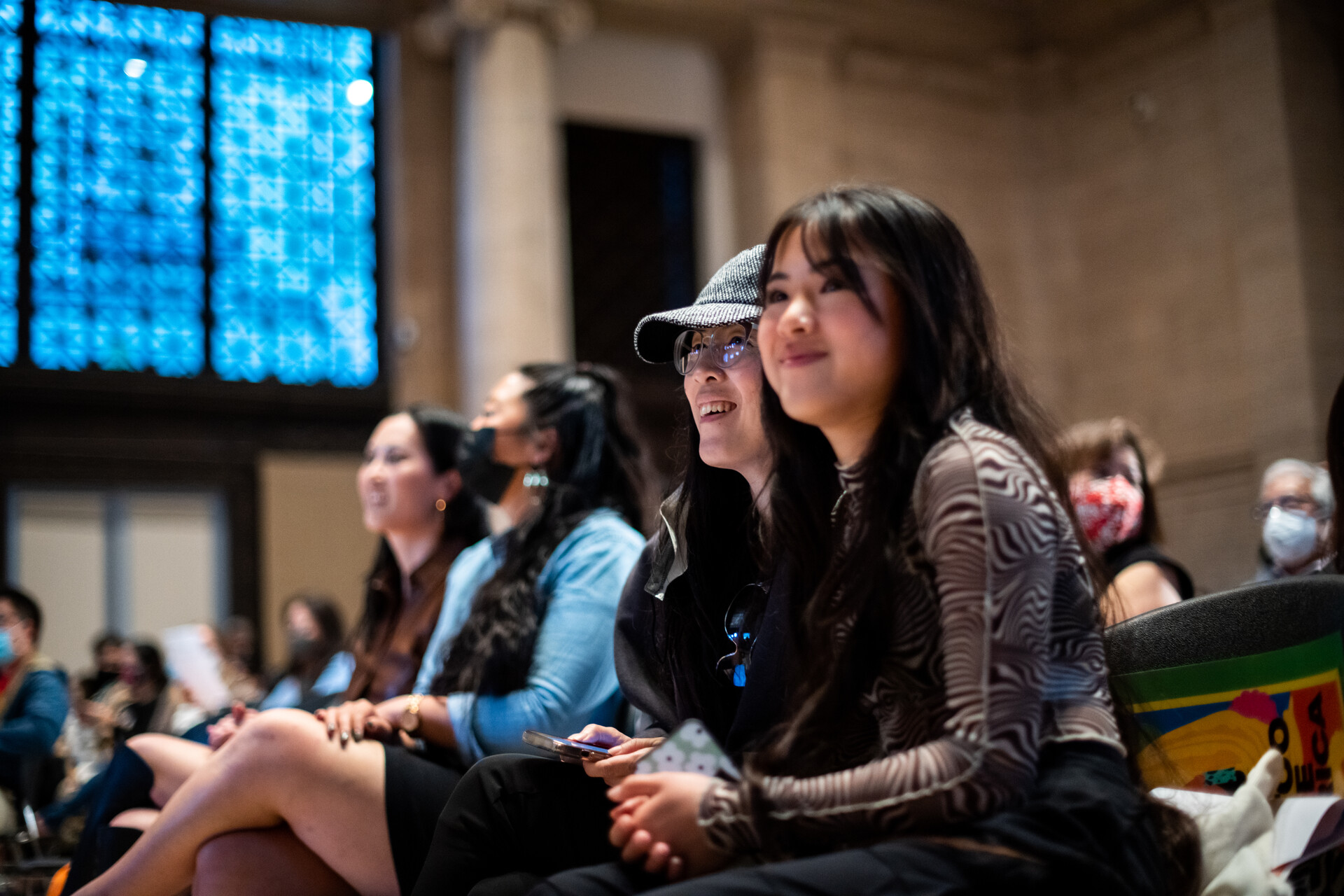
Between March 2020 and December 2021, nearly 11,000 anti-Asian hate incidents were reported to the California-based coalition Stop AAPI Hate. More than 60% of those incidents were reported by women.
“[The spa shootings were] a reminder for Asian women that we experience violence and discrimination in a particular way, the objectification of women, the stereotypes,” said Cynthia Choi, co-founder of Stop AAPI Hate, which is calling for more government investments to support victims of violence and discrimination.
